Our sponsorship with mountain runner Susanna Saapunki (Team Scarpa) started this spring, and we have been thrilled to follow her success throughout the summer as she has been racing in Italy, Austria and France.
We had a chance to interview Susanna and our employees were asked to phrase the questions for her. We got many interesting and practical questions about mountain running races as well as training, preparing and recovery. Read here how Susanna answered our questions!
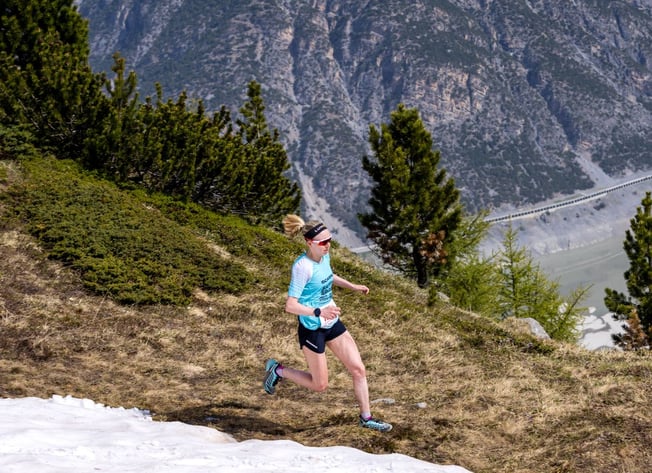
How do you prepare for the race? Does a special “nutritional plan” play a big role in preparation?
Preparation depends on the race, whether it is solely an uphill race or a normal long distance (uphill/downhill) race. The duration of the competition also affects the preparation. Usually, the training amount is reduced during the competition week and the duration of a single workout is shortened (workouts for more than 1h 30min are not done at all during the important race weeks). For example, if the race is on a Saturday, then the last tougher exercise will be done on Tuesday or Wednesday. Also, if the race is an uphill race then all the exercises during the race week will be done on the flat ground, without any more uphill training. This is how to maintain the muscles fresh for the race day. Preparing for competition also includes getting to know the race route and creating your own race plan.
The duration of my races are less than 2 hours, so there isn’t a big role for a special eating plan prior to the race, as there is for example for ultra races. The most important days are 2-3 days before the race, then I eat more carbohydrate food. On a day before the race, the energy is no longer easily absorbed all the way to the muscles and for example, light pasta dishes are usually enough.
Is it possible to enjoy additional energy during the competition, for example, gels or sports drinks?
Sports drinks and water are generally offered on behalf of the organizers and your own service team is also allowed to be at the watering points to offer their own drinks. Personally, I haven’t used energy gels a lot in competitions, but if I have a performance longer than 2 hours then I mix the gel with the drink so I can get it down easily while running.
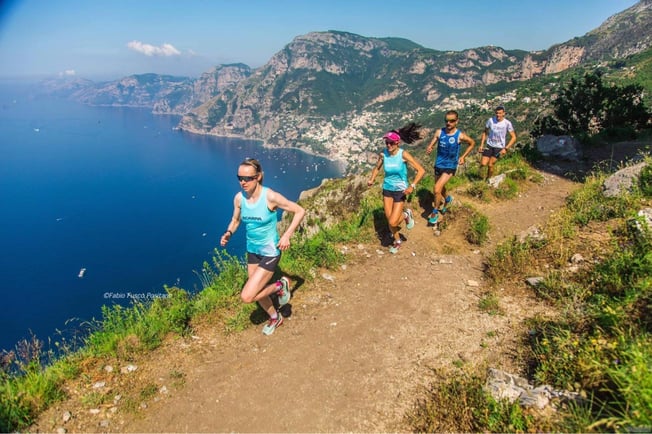
Photo: Fabio Fusco, Positano.
Are there any risks in mountain running, such as the risk of dripping? How are the organizers prepared for the potential hazards in the competitions?
In mountain running races, there shouldn’t be any risk of dripping on the routes. However, if the route would include a dangerous part, then the rescue people were there to monitor and secure the safety during the race. There are checkpoints along the route with first aiders on-site as well. When racing in the mountains, organizers are very careful with the weather conditions. If there is a chance of heavy rain or thunderstorm the race will be rescheduled easily or even cancelled.
Is it usually possible to run all the way in a mountain running race or is there such steep ascents or descents that you have to walk?
In general, it is possible to run all the way. Surely, there are individual differences between competitors and everyone isn’t able to run steep stretches but might be then tougher competitors on flat ground. In vertical races, the rises are so steep that everyone has to walk at least a few times. The descents are usually possible to run down but of course, the steep descents are surprisingly slow. Race routes can also have short steep stretches with slippery roots and rocks, so sometimes it’s even faster to take a couple of steps walking than try to run.
How long does it usually take to recover from the competition and what ways of recovery do you have?
The duration of recovery varies a lot depending on the competition. Usually, it takes several days (2-7 days) and on those days I only do peaceful short-term training. Light workout, baths in a cold pool and a massage are the best ways for me to recover. And of course, eating and sleeping well is important. I also use a simple test (Orto measurements) in the mornings to monitor the state of recovery.
I don’t use any “recovery pants” as when I have tried them they just made my muscles feel more feeble. Not all social media ads are worth believing in as it is truly individual what works!
What kind of shoes would you think suits best for mountain running? Do you have any favourite brand or model?
Actually, there isn’t one correct answer for this. In mountain running races, the terrain varies a lot. For most races, I use shoes with a small pattern on the bottom, but some races can be even run with regular running shoes. My favourite shoes are, of course, Scarpa shoes. I prefer their models Ribelle Run and Golden Gate. For long slow-paced runs, I also like to use Spin Ultra.
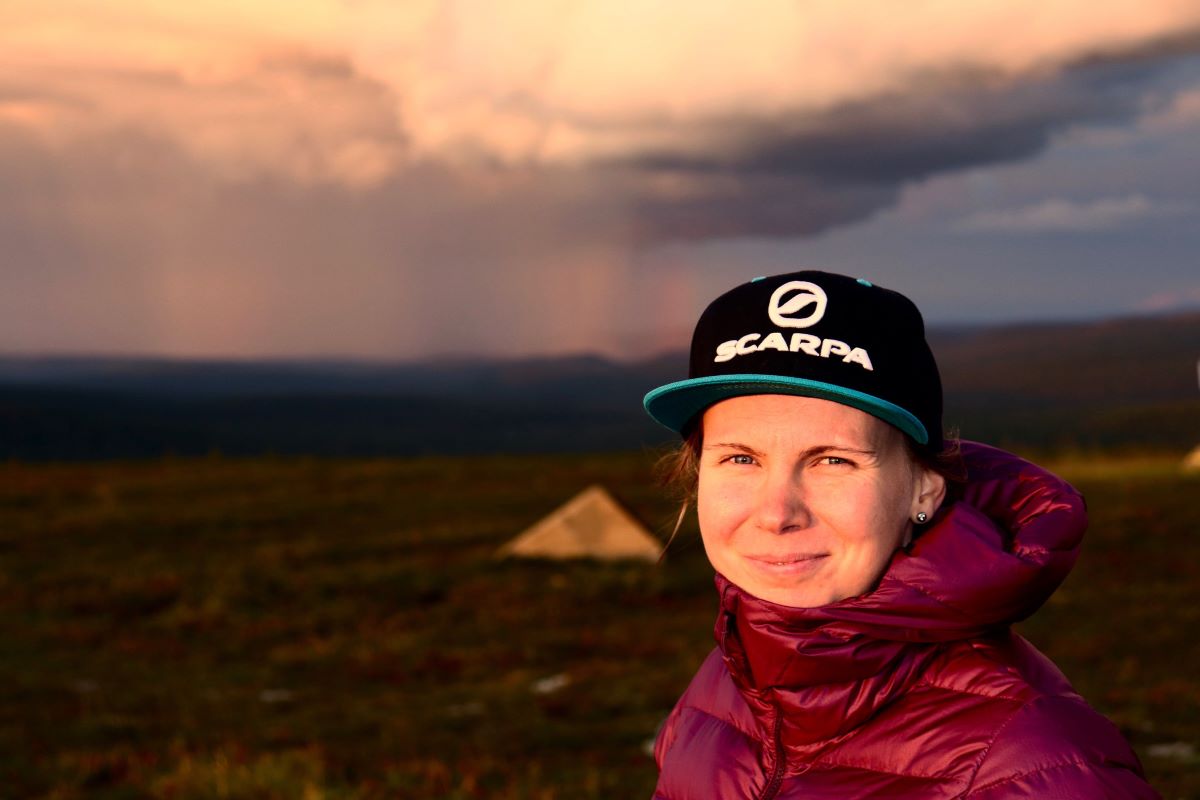
Susanna Saapunki is a Finnish mountain runner in Team Scarpa.
Has it been easy to "integrate" into the international Scarpa team after the Finnish national team? Pros and cons?
It has been really easy! We have a great team spirit and everyone is encouraged forward! All the things like exercise, test results and eating, etc. are talked about openly and experiences are shared. In general, sports are much more valued here as a profession and in the team, the individual is always supported in the way he or she needs. They don't try to “fit everyone in the same mold” - as they are maybe a little accidentally doing in Finnish skiing teams.
Perhaps the downside is that as a Finn I am used to the accuracy of schedules. Here, changes may happen quickly and the start of the exercises can be stretched later. Practically someone is always late! However, I’ve got used to it surprisingly quickly and it doesn’t affect negatively my own doing. Italians also speak 24/7 all the time. As an introverted person, I don’t always understand how they can come up with so much to talk about.
How does your background as a skier show in mountain running? Are there any training methods from your skier’s career that can be used also in mountain running?
As a skier, I have practised in a variety of ways since I was young. It has granted me a really good base and excellent oxygen uptake which helps me in mountain running. Of course, these sports are very different from each other and this spring/summer I’ve had to work a lot on the basics to be able to use all my qualities as a runner. As the body becomes more of a runner overall, it takes time to adjust. Actually, I’m not really using any of the skiing training methods in running training at the moment. I will anyway continue to use skiing as a maintenance exercise in the wintertime.
What are the most memorable racing experiences and the best route you have run?
This summer’s first mountain running World Cup competition in Austria was a great experience. It is also definitely one of my favourite routes!

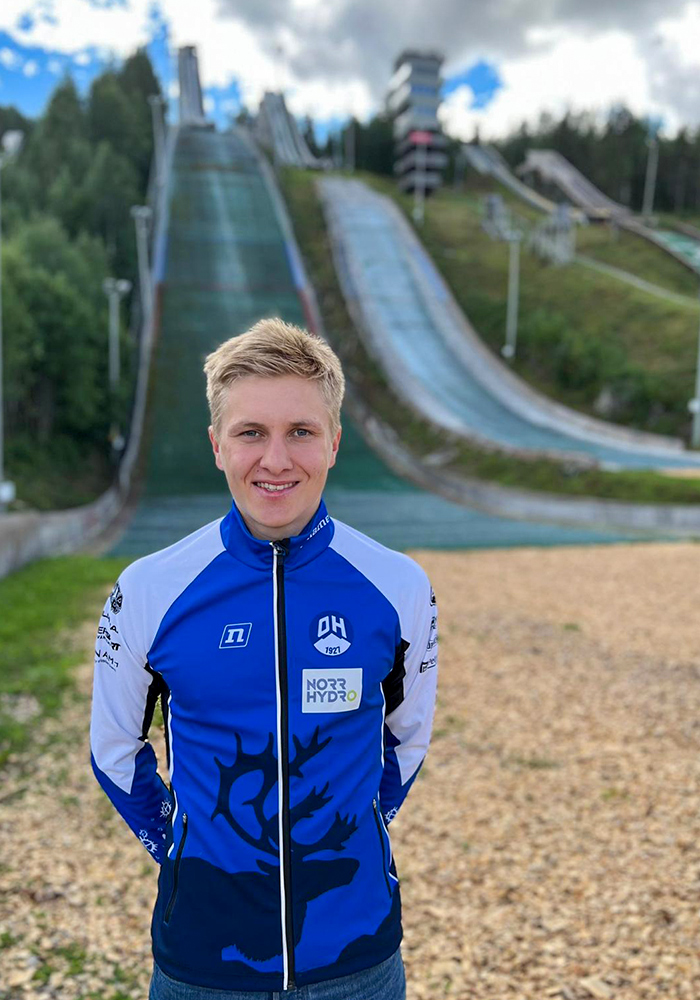
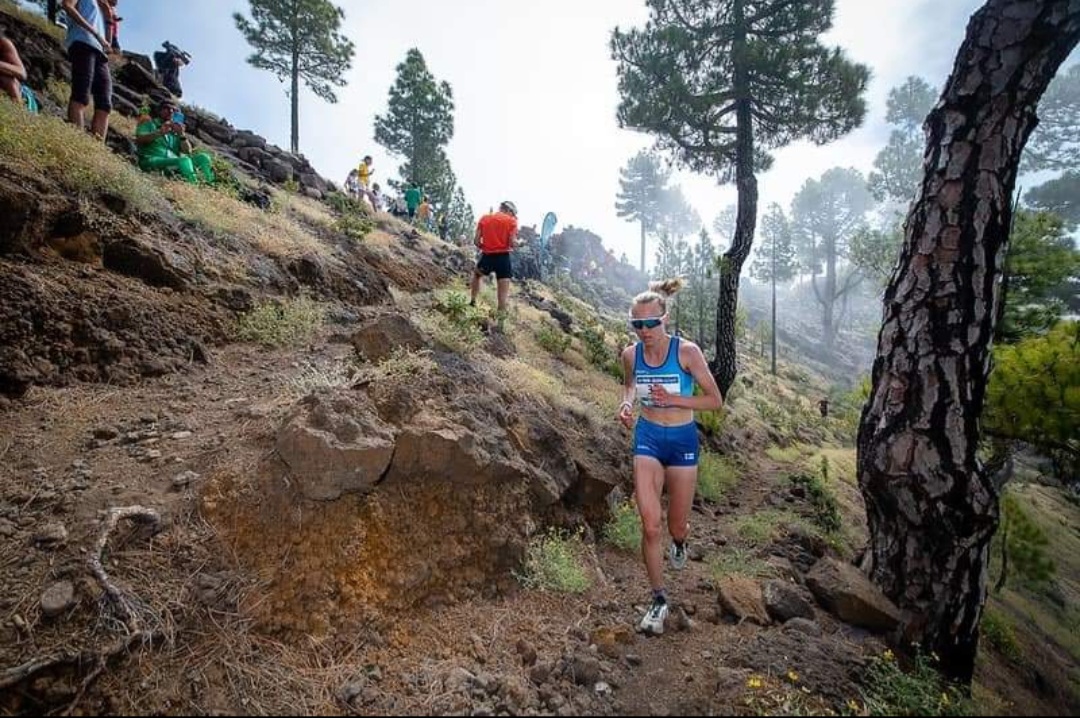




SUBMIT YOUR COMMENT